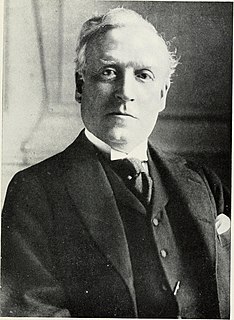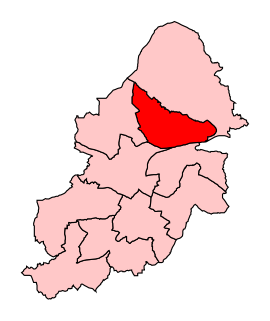The National Conservative Convention (NCC), is the most senior body of the Conservative Party's voluntary wing. The National Convention effectively serves as the Party's internal Parliament, and is made up of its 800 highest-ranking Party Officers.

The December 1910 United Kingdom general election was held from 3 to 19 December. It was the last general election to be held over several days and the last to be held prior to the First World War (1914–18).
The British Columbia Conservative Party, formerly the British Columbia Progressive Conservative Party, is a provincial political party in British Columbia, Canada. From the early 1900s until the 1950s, the Conservatives were, along with the British Columbia Liberal Party, one of the two major parties in the province. Since the 1950s, the party has gradually declined in prominence, last winning a seat in a 1978 by-election. The Conservatives enjoyed a brief resurgence after Liberal MLA John van Dongen joined the party in 2012, and won nearly 5% of the vote in the 2013 provincial election. The party plays a minor role in provincial politics today.
The Progressive Conservative Party of Manitoba is a right-of-centre political party in Manitoba, Canada and the only right-leaning party in the province. It is currently the governing party in the Legislative Assembly of Manitoba, after winning a substantial majority in the 2016 provincial election.
The Quebec general election of 1936 was held on August 17, 1936 to elect members of the Legislative Assembly of the Province of Quebec, Canada. The Union Nationale, led by Maurice Duplessis, defeated the incumbent Quebec Liberal Party, led by Adélard Godbout.
The Conservative Party of Quebec was a political party in Quebec, Canada, from 1867 until 1936, when it merged with members of the Action libérale nationale to form the Union Nationale.
Errick French Willis was a politician in Manitoba, Canada. He served as leader of the province's Conservative Party between 1936 and 1954, and was responsible for beginning and ending the party's alliance with the Liberal-Progressive Party. He also served as Manitoba's 15th Lieutenant Governor between 1960 and 1965.

The Union Nationale was a conservative and nationalist provincial political party in Quebec, Canada, that identified with Québécois autonomism. It was created during the Great Depression and held power in Quebec from 1936 to 1939, and from 1944 to 1960 and from 1966 to 1970. The party was founded by Maurice Duplessis, who led it until his death in 1959.
The Preston by-election, 1940 was a parliamentary by-election held for the British House of Commons constituency of Preston in Lancashire on 29 September 1940. The seat had become vacant on the death of the Conservative Member of Parliament Adrian Moreing, who had held the seat since the 1931 general election.
The Preston by-election, 1936 was a parliamentary by-election held for the British House of Commons constituency of Preston on 25 November 1936. The seat had become vacant when the Conservative Member of Parliament William Kirkpatrick had resigned to take up the post of representative to China of the Export Credits Guarantee Department.
The Combined Scottish Universities by-election, 1936 was a by-election held from 27 to 31 January 1936 for the Combined Scottish Universities, a university constituency of the British House of Commons.
The members of the 20th Manitoba Legislature were elected in the Manitoba general election held in July 1936. The legislature sat from February 18, 1937, to March 12, 1941.
The Dunbartonshire by-election of 1936 was held on 18 March 1936. The by-election was held due to the appointment as Governor of Burma of the incumbent Conservative MP, Archibald Douglas Cochrane. It was won by the Labour candidate Thomas Cassells.
The Peckham by-election of 1936 was held on 6 May 1936. The by-election was held due to the succession to peerage of the incumbent Conservative MP, David Beatty. It was won by the Labour candidate Lewis Silkin.
The Balham and Tooting by-election of 1936 was held on 23 July 1936. The by-election was held after the incumbent Conservative MP, Sir Alfred Butt, 1st Baronet resigned in June 1936 over a scandal concerning a leak of budget details from which he was believed to have benefitted financially. It was won by the Conservative candidate George Doland.
The East Grinstead by-election of 1936 was held on 23 July 1936. The by-election was held due to the elevation to the peerage of the incumbent Conservative MP, Henry Cautley. It was won by the Conservative candidate Ralph Clarke.
The Lewes by-election of 1936 was held on 18 June 1936. The by-election was held due to the elevation to the peerage of the incumbent Conservative MP, John Loder. It was won by the Conservative candidate Tufton Beamish.
Elections to Liverpool City Council were held on 1 November 1938. One third of the council seats were up for election, the term of office of each councillor being three years.
Elections to Liverpool City Council were held on 1 November 1937. One third of the council seats were up for election, the term of office of each councillor being three years.
Elections to Liverpool City Council were held on 1 November 1936. One third of the council seats were up for election, the term of office of each councillor being three years.


